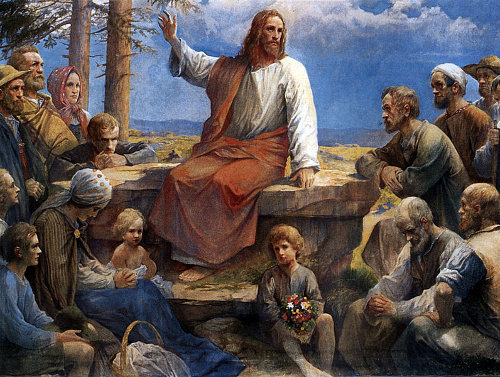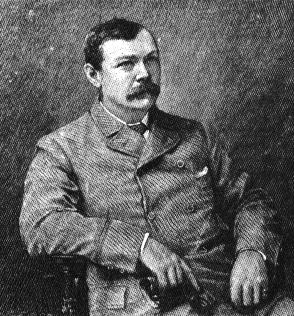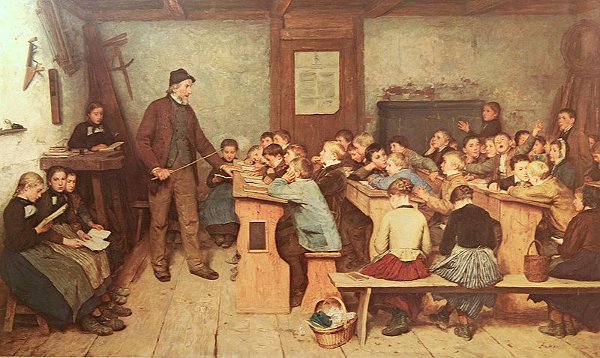From J.A. Lindon in Recreational Mathematics Magazine, December 1962: If you advance I MUNCH BUN six places through the alphabet, you get O SATIN HAT:

Surely this means something.
From J.A. Lindon in Recreational Mathematics Magazine, December 1962: If you advance I MUNCH BUN six places through the alphabet, you get O SATIN HAT:

Surely this means something.

On Feb. 11, 1979, 27-year-old Scott Moorman and four friends set out from Hana, Maui, for a daylong fishing expedition aboard the Sarah Joe, a 16.5-foot fiberglass motorboat. They did not return. The Coast Guard searched for five days, and private searches continued much longer, but no trace of them was found.
Nine and a half years later, in 1988, marine biologist John Naughton discovered a wrecked boat with Hawaiian registry on Taongi, the northernmost coral atoll in the Marshall Islands, 2,300 miles west of Hawaii. It was the Sarah Joe, and nearby, under a pile of stones and a driftwood cross, were the bones of Scott Moorman. How he came there, who buried him, and what became of the others remain unknown.
“I am willing to give you a show,
But are these all the rôles that you know?”
The manager cried.
And the actor replied,
“Sirrah! No, sir; I know ‘Cyrano’!”
There was a young lady of Butte,
Who thought herself very acute.
That her suitor might praise her,
She gave him a razor,
Which suited her suitor hirsute.
There was a nice fellow named Jenner,
Who sang a phenomenal tenor,
He had little to spend,
So I often would lend
The tenor a ten or a tenner.
‘Tis said, woman loves not her lover
So much as she loves his love of her;
Then loves she her lover
For love of her lover,
Or love of her love of her lover?
— From Carolyn Wells’ Book of American Limericks, 1925.

Published in 1961, the New English Bible was an attempt to translate the original Greek, Hebrew, and Aramaic texts of the Bible into modern English. Dwight MacDonald found this was “like finding a parking lot where a great church once stood.” As an illustration, he recast the Sermon on the Mount using only phrases that appear in the NEB:
When he realized how things stood, Jesus held a meeting to look into the matter. It was no hole-in-the-corner business. He went up the hill and began. ‘And now, not to take up too much of your time, I crave indulgence for a brief statement of our case. How blest are they that know they are poor. You are light for all the world. If a man wants to sue you for your shirt, let him have your coat as well. I also might make bold to say that you cannot serve God and money. Do not feed your pearls to pigs, and be ready for action, with belts fastened and lamps alight. Thanks for giving me a hearing.’ He then went to lunch with some distinguished persons.
“True, they did preserve ‘Jesus wept,'” MacDonald wrote. “But I’m sure there was strong support for ‘Jesus burst into tears.'”
In 1910 Frances Cornford published “To a Fat Lady Seen From the Train”:
O why do you walk through the fields in gloves,
Missing so much and so much?
O fat white woman whom nobody loves,
Why do you walk through the fields in gloves,
When the grass is soft as the breast of doves
And shivering sweet to the touch?
O why do you walk through the fields in gloves,
Missing so much and so much?
In 1927 G.K. Chesterton felt moved to reply:
Why do you rush through the field in trains,
Guessing so much and so much?
Why do you flash through the flowery meads,
Fat-head poet that nobody reads;
And why do you know such a frightful lot
About people in gloves and such?
“If a man could have half his wishes, he would double his troubles.” — Ben Franklin

nescience
n. ignorance; lack of knowledge
agnoiology
n. the study of ignorance
In 1927, Hungarian physiologist Albert Szent-Györgyi isolated a substance in lemons and oranges that seemed to prevent scurvy.
He couldn’t identify it chemically, so he called it “ignose,” meaning “I do not know.”
When the editors of the Biochemical Journal asked for a different name, Szent-Györgyi suggested “godnose.” Finally they settled on “hexuronic acid.”
It turned out to be vitamin C.

Late in life Arthur Conan Doyle pursued an interest in the possibility of spiritualism and existence beyond the grave. He was widely criticized for this, but a writer to the Graphic raised a redeeming point:
Although we may misbelieve mediums and
With doubt and suspicion our minds may be filled,
Sherlock Holmes, we must grant, reappeared in the Strand
A number of times after having been killed.
Indeed, Holmes had returned against his creator’s wishes. “I never thought they would take it so much to heart,” Conan Doyle once wrote of Holmes’ death. “I got letters from all over the world reproaching me on the subject. One, I remember, from a lady whom I did not know, began ‘You beast’.”

Multiplication is mie vexation,
And Division is quite as bad,
The Golden Rule is mie stumbling stule,
And Practice drives me mad.
So wrote an anonymous English student in 1570. Matters had not progressed far in 1809, when 6-year-old Marjorie Fleming wrote in her diary: “I am now going to tell you about the horible and wretched plaege my multiplication gives me you cant concieve it — the most Devilish thing is 8 times 8 & 7 times 7 it is what nature itselfe cant endure.”
Alas, the feeling is sometimes shared. After serving four years as a teacher, D.H. Lawrence wrote:
When will the bell ring, and end this weariness?
How long have they tugged the leash, and strained apart
My pack of unruly hounds: I cannot start
Them again on a quarry of knowledge they hate to hunt,
I can haul them and urge them no more.
No more can I endure to bear the brunt
Of the books that lie out on the desks: a full three score
Of several insults of blotted pages and scrawl
Of slovenly work that they have offered me.
I am sick, and tired more than any thrall
Upon the woodstacks working weariedly.
And shall I take
The last dear fuel and heap it on my soul
Till I rouse my will like a fire to consume
Their dross of indifference, and burn the scroll
Of their insults in punishment? — I will not!
I will not waste myself to embers for them,
Not all for them shall the fires of my life be hot,
For myself a heap of ashes of weariness, till sleep
Shall have raked the embers clear: I will keep
Some of my strength for myself, for if I should sell
It all for them, I should hate them —
— I will sit and wait for the bell.
In 1975, radio personality Jim Everhart published a three-volume Illustrated Texas Dictionary of the English Language:
ARN: A silver-white metallic element. “Mah muscle is as strong as arn.”
TOAD: The past tense of tell. “Ah toad you never to do that.”
PRAYED: A large public procession, usually including a marching band. “That was some prayed they had downtown.”
Four years later, Chase Untermeyer contributed a “Texlexicon” of words uttered by his colleagues in the state legislature:
HARD: Employed, as “I hard him to do the job.” Also a man’s name, as “Mah wife’s a cousin of Hard Hughes.”
RULE: Nonurban, as “He comes from the rule area.”
FORCED: A large group of trees, as “Lemme showya mah pine forced.”
BAR SHUN: The termination of pregnancy, as “Bar shun is murder!”
WHORED: Difficult, as “That was a whored one.”
WON’T: To desire, as “Ah won’t to seeya tonight.”
LOWERED BARN: An English poet (1788-1824).
“The amazing thing about this is that I never had one single Texan tell me he resented it,” Everhart told the New York Times. “They have accepted it more enthusiastically than anybody else. I think they’re kind of proud of it.”